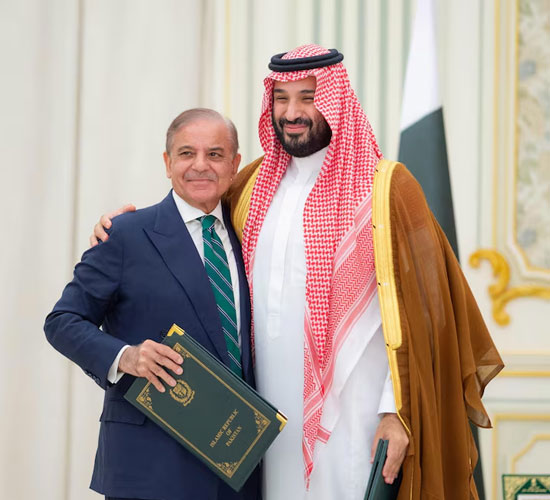Daijiworld Media Network - Riyadh
Riyadh, Sep 19: A landmark ‘Strategic Mutual Defense Agreement’ signed between Saudi Arabia and Pakistan this week is stirring global attention amid fears of a shifting security landscape in the Middle East.
The pact effectively combines Saudi Arabia’s financial clout with Pakistan’s powerful military — the only nuclear-armed force in the Muslim world — though both nations insist nuclear weapons are not part of the arrangement.

Pakistani Defence Minister Khawaja Muhammad Asif told Reuters that the deal is “not on the radar” for nuclear cooperation and is purely defensive. “We have no intention of using this pact for any aggression. But if the parties are threatened, then obviously this arrangement will become operative,” he said.
Analysts, however, say the agreement could be seen by Riyadh as an informal nuclear umbrella, especially after Israel’s recent strikes on Qatar heightened regional concerns. A senior Saudi official hinted the pact “encompasses all military means.”
Security experts view the deal as a sign of waning Arab confidence in U.S. protection. Hasan Alhasan of the International Institute for Strategic Studies noted it aims to “plug the strategic and conventional deterrence deficit vis-à-vis nuclear-armed Israel.”
India, Iran, and Israel are watching closely. India said it would study the implications for national security and regional stability.
Pakistan, which has fought three wars with India and maintains a large missile arsenal, has long denied any offensive nuclear intent beyond deterrence against its neighbor. Yet, experts note that Pakistan’s long-range missiles could theoretically reach Israel.
The agreement underscores growing Saudi-Pakistan cooperation, with Prime Minister Shehbaz Sharif thanking Crown Prince Mohammed bin Salman for boosting investments and trade ties. Analysts say the pact strengthens Saudi deterrence while giving Pakistan economic and strategic leverage in the volatile Gulf region.